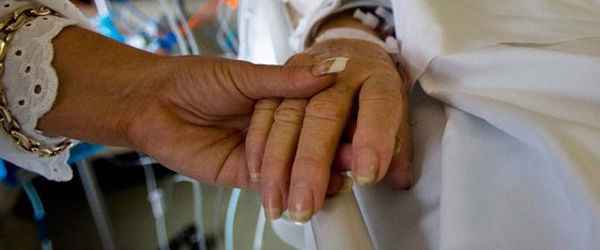The event drew some 220 people from 33 states and three countries --- nearly triple from a year ago, said Christina Lynch, conference chair. Attendees were primarily psychotherapists, students of psychology and more than 30 percent of the participants were clergy, religious and seminarians, added Lynch, staff psychologist for St. John Vianney Theological Seminary.
The event at the Denver Archdiocese's John Paul II Center and a nearby hotel included talks by noted mental health experts, the participation of three Colorado bishops, Mass, a banquet, vendor exhibits and opportunities for networking.
"The relationships to be had here --- friendships and new connections --- is a wonderful thing," said attendee Ann Simons, a psychotherapist from Dallas. "I converted to Catholicism in 2007 so I'm still a voracious reader and taker-inner of all things Catholic, especially with regard to psychological issues."
Colleague Valerie Conzett of Omaha added, “The phrase 'the fullness of the faith' keeps coming back to me. It's an exciting time to be a therapist. This conference offers new tools."
Author-editor Paul Vitz, senior scholar and director of a master's program at the Institute for Psychological Sciences in Arlington, Va., gave the morning keynote presentation March 25 on "Why Now Is the Time for Integrating Psychology With the Faith."
Vitz said a decline in secular confidence, the growth of religion around the world, the development of psychological theories compatible with Christianity and an increase in the number of Christian psychotherapists make this an ideal time for Christian-psychology integration.
He outlined four advantages he said Catholicism has to make this work: a well-defined theology, a clear moral framework, significant philosophical support and broad cultural range (universality).
Catholics believe that human beings are created in the image and likeness of God, are fallen and redeemed, Vitz said, adding that at his institute, "that basic structure is a fundamental narrative not just of history but is applicable to all our patients."
A presentation on "Treatment of Pornography Addiction at the Service of the Church" was delivered jointly by Daniel Spadero, a licensed counselor specializing in sexual addictions and member of the Colorado Springs Diocese's task force on pornography and Sam Meier, of "My House --- Freedom From Pornography" initiative of the Archdiocese of Kansas City, Kan.
Meier shared several statics, including that:
--- The United States produces more pornographic films than any other country, according to www.internet-filter.com.
--- A 2008 survey at a Catholic high school in the Midwest revealed 48 percent of its 350 senior boys viewed pornography at least once a week and 36 percent of those boys said they had feelings of addiction to pornography.
--- The same survey showed 80-85 percent of those students who viewed porn accessed it through the Internet.
--- Two-thirds of the 350 lawyers attending the 2002 American Academy of Matrimonial Lawyers conference said the Internet had played a significant role in divorces they had handled the previous year: from spouses meeting new love interests over the Web (68 percent), to obsessive interest in pornographic sites (56 percent), to excessive time spent on the computer (47 percent) and excessive time spent in chat rooms (33 percent).
Meier said there are four "pillars" for recovery from pornography addiction: Attend a 12-step recovery group weekly; make daily phone calls to a support person; do daily recovery reading; and pray daily.
A decline in secular confidence, the growth of religion around the world, the development of psychological theories compatible with Christianity and an increase in the number of Christian psychotherapists make this an ideal time for Christian-psychology integration.
Recovery, Spader and Meier said, is a three- to five-year process. "This is a long-term recovery," Spader said. "It is started by stopping addictive behaviors."
But there also is "the need to grow in deeper intimacy, not only with a spouse, family member or loved one, but also with God," he explained. "We sell addiction recovery short if we are just satisfied with the person stopping the compulsive behavior.
"We are called to something as well," he continued. "The ultimate goal for men is to fulfill their role as husbands, fathers, in the workplace. What pornography does is it eliminates the focus; it puts the focus on a distraction. It doesn't allow the individual to focus on their call, their vocation."
Recovery resources Spader and Meier recommend include the websites www.LoveIsFaithful.com and Sexaholics Anonymous, www.sa.org.
Other conference speakers included Colorado Springs Bishop Michael Sheridan, whose keynote address at the banquet offered practical tips on how psychology can serve the church.
---CNS

